[Anchor]
The prosecution is ultimately in a situation where it may have to maintain charges against the sitting president without even conducting an investigation.
The investigation into the president's charges of insurrection continues to spark controversy in various places.
Many analyses point to the ambiguous Corruption Investigation Office for High-ranking Officials Act as the root cause.
Even the current chief judge has pointed out that clarification is needed from the Supreme Court.
Kim Tae-hoon reports.
[Report]
The Corruption Investigation Office for High-ranking Officials took over the investigation into President Yoon Suk Yeol's 'insurrection charges' after pressuring the prosecution and police following the December 3 martial law incident.
This was based on Article 24 of the Corruption Investigation Office for High-ranking Officials Act, but the prosecution's request for cooperative investigation was firmly rejected.
The problem is that the Corruption Investigation Office for High-ranking Officials Act does not explicitly include 'insurrection' as a target of investigation.
The CIO can investigate cases related to abuse of power, and since the court has issued both an arrest warrant and a detention warrant for President Yoon, they maintain that it is a 'legitimate investigation,' but the situation remains a hot potato.
[Seok Dong-hyun/Lawyer/President Yoon's side/Jan. 16: "The illegality of the Corruption Investigation Office for High-ranking Officials investigation against the president, and the jurisdiction violation of the arrest warrant request...."]
[Han Sang-hee/Emeritus Professor, Korea University Law School/Jan. 17: "By dismissing the (arrest review) decision at the Central District Court, the two legal controversies have been resolved."]
There are differing interpretations regarding whether the prosecution can conduct supplementary investigations into the Corruption Investigation Office for High-ranking Officials case.
The prosecution believes that since the CIO failed to conduct a face-to-face investigation with President Yoon, additional supplementary investigations are necessary. But the Seoul Central District Court ruled yesterday that the prosecution should only consider whether to indict in the investigation led by the Corruption Investigation Office for High-ranking Officials.
The prosecution now finds itself in a situation where it may have to maintain charges against the sitting president without a single interrogation record.
As practical confusion continues due to the loopholes in the Corruption Investigation Office for High-ranking Officials Act, opinions are emerging among judges that clarification is needed.
Cheongju District Court Chief Im Byeong-ryeol wrote on the court's internal bulletin board, "The issue of whether the Corruption Investigation Office for High-ranking Officials has the authority to investigate insurrection is still undecided," and requested a clear legal interpretation from the Chief Justice and Supreme Court justices for the protection of frontline judges.
KBS News, Kim Tae-hoon.
The prosecution is ultimately in a situation where it may have to maintain charges against the sitting president without even conducting an investigation.
The investigation into the president's charges of insurrection continues to spark controversy in various places.
Many analyses point to the ambiguous Corruption Investigation Office for High-ranking Officials Act as the root cause.
Even the current chief judge has pointed out that clarification is needed from the Supreme Court.
Kim Tae-hoon reports.
[Report]
The Corruption Investigation Office for High-ranking Officials took over the investigation into President Yoon Suk Yeol's 'insurrection charges' after pressuring the prosecution and police following the December 3 martial law incident.
This was based on Article 24 of the Corruption Investigation Office for High-ranking Officials Act, but the prosecution's request for cooperative investigation was firmly rejected.
The problem is that the Corruption Investigation Office for High-ranking Officials Act does not explicitly include 'insurrection' as a target of investigation.
The CIO can investigate cases related to abuse of power, and since the court has issued both an arrest warrant and a detention warrant for President Yoon, they maintain that it is a 'legitimate investigation,' but the situation remains a hot potato.
[Seok Dong-hyun/Lawyer/President Yoon's side/Jan. 16: "The illegality of the Corruption Investigation Office for High-ranking Officials investigation against the president, and the jurisdiction violation of the arrest warrant request...."]
[Han Sang-hee/Emeritus Professor, Korea University Law School/Jan. 17: "By dismissing the (arrest review) decision at the Central District Court, the two legal controversies have been resolved."]
There are differing interpretations regarding whether the prosecution can conduct supplementary investigations into the Corruption Investigation Office for High-ranking Officials case.
The prosecution believes that since the CIO failed to conduct a face-to-face investigation with President Yoon, additional supplementary investigations are necessary. But the Seoul Central District Court ruled yesterday that the prosecution should only consider whether to indict in the investigation led by the Corruption Investigation Office for High-ranking Officials.
The prosecution now finds itself in a situation where it may have to maintain charges against the sitting president without a single interrogation record.
As practical confusion continues due to the loopholes in the Corruption Investigation Office for High-ranking Officials Act, opinions are emerging among judges that clarification is needed.
Cheongju District Court Chief Im Byeong-ryeol wrote on the court's internal bulletin board, "The issue of whether the Corruption Investigation Office for High-ranking Officials has the authority to investigate insurrection is still undecided," and requested a clear legal interpretation from the Chief Justice and Supreme Court justices for the protection of frontline judges.
KBS News, Kim Tae-hoon.
■ 제보하기
▷ 카카오톡 : 'KBS제보' 검색, 채널 추가
▷ 전화 : 02-781-1234, 4444
▷ 이메일 : kbs1234@kbs.co.kr
▷ 유튜브, 네이버, 카카오에서도 KBS뉴스를 구독해주세요!
- Loopholes of CIO Act in question
-
- 입력 2025-01-25 23:19:36
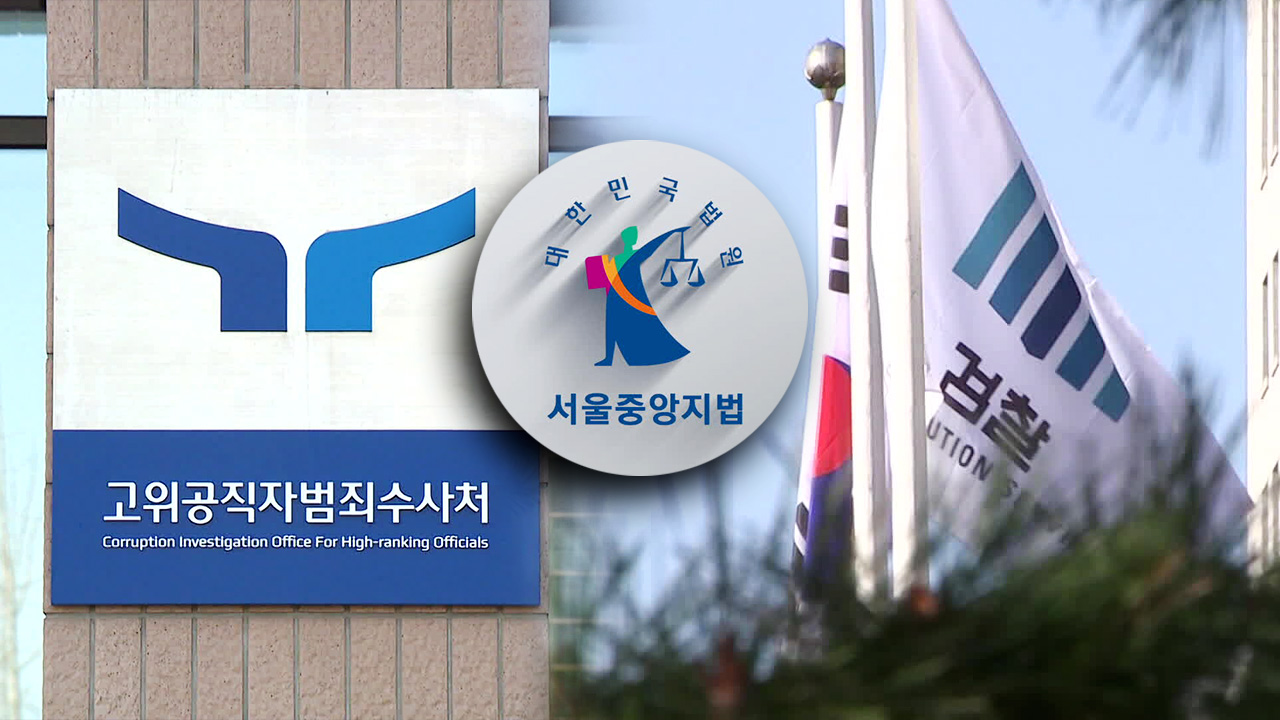
[Anchor]
The prosecution is ultimately in a situation where it may have to maintain charges against the sitting president without even conducting an investigation.
The investigation into the president's charges of insurrection continues to spark controversy in various places.
Many analyses point to the ambiguous Corruption Investigation Office for High-ranking Officials Act as the root cause.
Even the current chief judge has pointed out that clarification is needed from the Supreme Court.
Kim Tae-hoon reports.
[Report]
The Corruption Investigation Office for High-ranking Officials took over the investigation into President Yoon Suk Yeol's 'insurrection charges' after pressuring the prosecution and police following the December 3 martial law incident.
This was based on Article 24 of the Corruption Investigation Office for High-ranking Officials Act, but the prosecution's request for cooperative investigation was firmly rejected.
The problem is that the Corruption Investigation Office for High-ranking Officials Act does not explicitly include 'insurrection' as a target of investigation.
The CIO can investigate cases related to abuse of power, and since the court has issued both an arrest warrant and a detention warrant for President Yoon, they maintain that it is a 'legitimate investigation,' but the situation remains a hot potato.
[Seok Dong-hyun/Lawyer/President Yoon's side/Jan. 16: "The illegality of the Corruption Investigation Office for High-ranking Officials investigation against the president, and the jurisdiction violation of the arrest warrant request...."]
[Han Sang-hee/Emeritus Professor, Korea University Law School/Jan. 17: "By dismissing the (arrest review) decision at the Central District Court, the two legal controversies have been resolved."]
There are differing interpretations regarding whether the prosecution can conduct supplementary investigations into the Corruption Investigation Office for High-ranking Officials case.
The prosecution believes that since the CIO failed to conduct a face-to-face investigation with President Yoon, additional supplementary investigations are necessary. But the Seoul Central District Court ruled yesterday that the prosecution should only consider whether to indict in the investigation led by the Corruption Investigation Office for High-ranking Officials.
The prosecution now finds itself in a situation where it may have to maintain charges against the sitting president without a single interrogation record.
As practical confusion continues due to the loopholes in the Corruption Investigation Office for High-ranking Officials Act, opinions are emerging among judges that clarification is needed.
Cheongju District Court Chief Im Byeong-ryeol wrote on the court's internal bulletin board, "The issue of whether the Corruption Investigation Office for High-ranking Officials has the authority to investigate insurrection is still undecided," and requested a clear legal interpretation from the Chief Justice and Supreme Court justices for the protection of frontline judges.
KBS News, Kim Tae-hoon.
The prosecution is ultimately in a situation where it may have to maintain charges against the sitting president without even conducting an investigation.
The investigation into the president's charges of insurrection continues to spark controversy in various places.
Many analyses point to the ambiguous Corruption Investigation Office for High-ranking Officials Act as the root cause.
Even the current chief judge has pointed out that clarification is needed from the Supreme Court.
Kim Tae-hoon reports.
[Report]
The Corruption Investigation Office for High-ranking Officials took over the investigation into President Yoon Suk Yeol's 'insurrection charges' after pressuring the prosecution and police following the December 3 martial law incident.
This was based on Article 24 of the Corruption Investigation Office for High-ranking Officials Act, but the prosecution's request for cooperative investigation was firmly rejected.
The problem is that the Corruption Investigation Office for High-ranking Officials Act does not explicitly include 'insurrection' as a target of investigation.
The CIO can investigate cases related to abuse of power, and since the court has issued both an arrest warrant and a detention warrant for President Yoon, they maintain that it is a 'legitimate investigation,' but the situation remains a hot potato.
[Seok Dong-hyun/Lawyer/President Yoon's side/Jan. 16: "The illegality of the Corruption Investigation Office for High-ranking Officials investigation against the president, and the jurisdiction violation of the arrest warrant request...."]
[Han Sang-hee/Emeritus Professor, Korea University Law School/Jan. 17: "By dismissing the (arrest review) decision at the Central District Court, the two legal controversies have been resolved."]
There are differing interpretations regarding whether the prosecution can conduct supplementary investigations into the Corruption Investigation Office for High-ranking Officials case.
The prosecution believes that since the CIO failed to conduct a face-to-face investigation with President Yoon, additional supplementary investigations are necessary. But the Seoul Central District Court ruled yesterday that the prosecution should only consider whether to indict in the investigation led by the Corruption Investigation Office for High-ranking Officials.
The prosecution now finds itself in a situation where it may have to maintain charges against the sitting president without a single interrogation record.
As practical confusion continues due to the loopholes in the Corruption Investigation Office for High-ranking Officials Act, opinions are emerging among judges that clarification is needed.
Cheongju District Court Chief Im Byeong-ryeol wrote on the court's internal bulletin board, "The issue of whether the Corruption Investigation Office for High-ranking Officials has the authority to investigate insurrection is still undecided," and requested a clear legal interpretation from the Chief Justice and Supreme Court justices for the protection of frontline judges.
KBS News, Kim Tae-hoon.
-
-
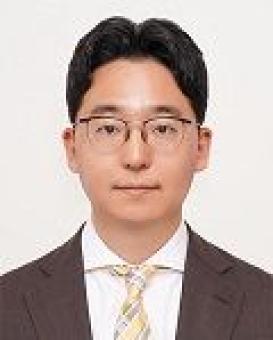
김태훈 기자 abc@kbs.co.kr
김태훈 기자의 기사 모음
-
이 기사가 좋으셨다면
-
좋아요
0
-
응원해요
0
-
후속 원해요
0










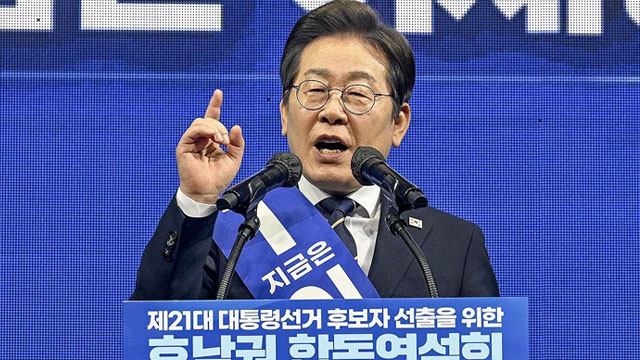
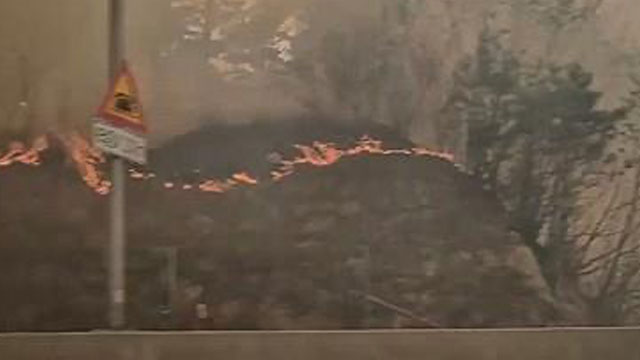
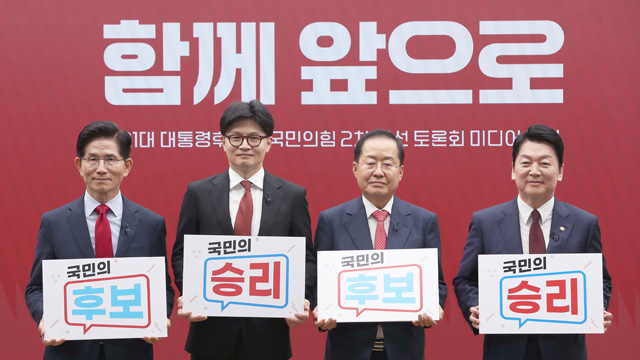
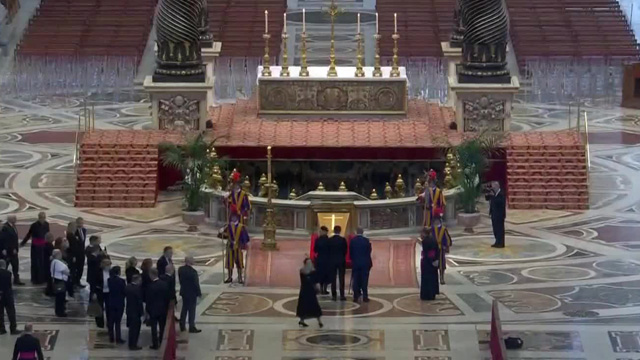

이 기사에 대한 의견을 남겨주세요.